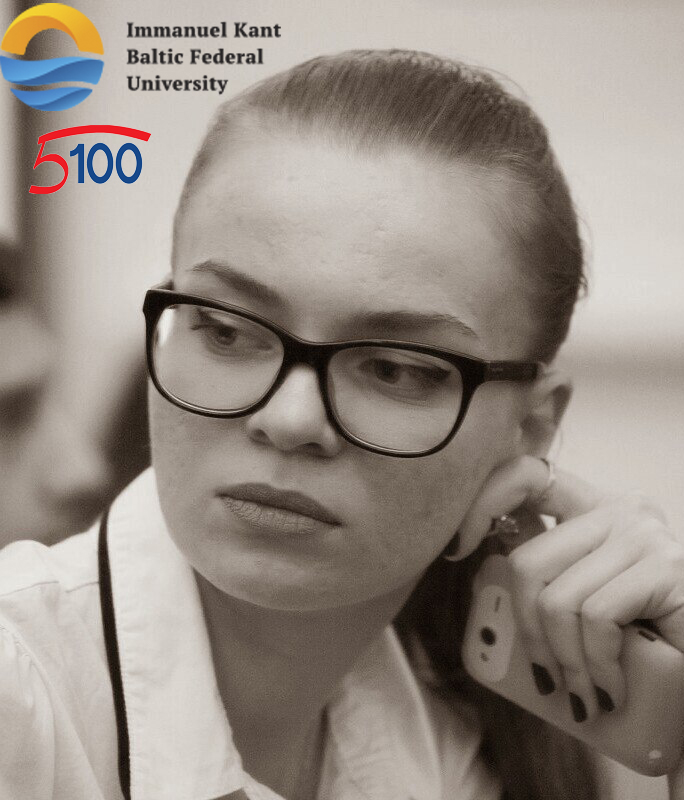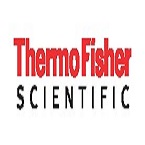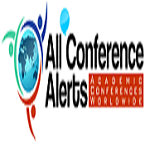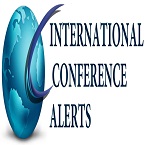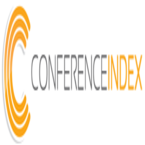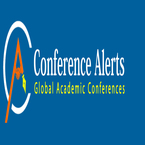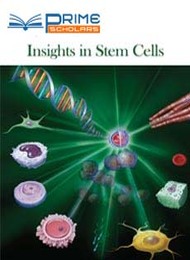Theme: Exploring the Potency of Stem Cells for Healing and Innovation
STEM CELL CONGRESS 2024
- About Conference
- Targeted Audience
- Session & Tracks
- Benefits of Participation
- Market Analysis
- Visa Trip Advisor
The 17th World Congress on Stem Cell Research is a premier global event bringing together leading scientists, researchers, and professionals in the field of stem cell biology. This prestigious conference held on December 09-10, 2024 in Dubai, UAE. & offers a platform for the discussion of ground-breaking advancements in stem cell therapy, regenerative medicine, and biotechnological innovations. It serves as a forum for sharing cutting-edge research, clinical applications, and future trends shaping the landscape of stem cell science. Participants will have the opportunity to engage with renowned keynote speakers, attend specialized workshops, and explore poster presentations on diverse topics such as tissue engineering, cellular reprogramming, gene editing, and therapeutic stem cell applications. The Congress aims to foster collaboration and inspire new research directions to address challenges in treating degenerative diseases, cancer, and tissue injuries. The event underscores the importance of stem cell research in transforming medicine and improving human health, paving the way for next-generation therapies.The conference is designed for a diverse audience, including medical researchers, clinicians, bioethicists, neuroscientists, cancer researchers, and many others involved in the life sciences and healthcare sectors. The goal is to foster knowledge exchange and collaborative partnerships to advance the field of regenerative medicine. Key highlights include abstract presentations, workshops, poster sessions, and discussions on the latest innovations in stem cell therapies, bioengineering, and tissue regeneration. The congress will also provide opportunities for early-career researchers to showcase their work and network with leading professionals in the field? of genetics & Molecular Biology.
- Medical Researchers
- Clinicians.
- Bioethicists
- Cancer Researchers
- Neuroscientists
- Cardiologists
- Orthopaedic Surgeons
- Dermatologists
- Veterinarians
- Public Health Organizations
- Embryologists
- Bioengineers
- Agricultural Scientists
- Investors
- Paediatricians
Track 01: Stem Cell & Regenerative Drugs
Stem cell and regenerative drugs encompass a diverse range of therapeutic approaches aimed at harnessing the regenerative potential of stem cells to treat diseases and injuries. These drugs may involve the use of stem cells themselves, derived from various sources such as bone marrow, adipose tissue, or embryonic sources, or they may consist of molecules and compounds that stimulate endogenous stem cells within the body. The goal of these therapies is to promote tissue repair, regeneration, and restoration of function in damaged or diseased tissues and organs.
Track 02: Cell and Genetic Therapy
Cell and genetic therapy represents a cutting-edge approach to treating diseases by harnessing the power of cells and genetic material to target underlying causes. Cell therapy involves transplanting or manipulating cells, often stem cells, to repair, replace, or regenerate damaged tissues or organs. These cells can be sourced from various origins, including the patient's own body, donors, or cultured in a laboratory.
Track 03: Bone Marrow Transplantation
Bone marrow transplantation is particularly effective in treating diseases such as leukemia, lymphoma, and multiple myeloma, where the patient's bone marrow is affected by cancerous or abnormal cells. By replacing the diseased marrow with healthy stem cells, the procedure aims to restore normal blood cell production and function.
Track 04: Stem Cells in Drug Discovery
Stem cells play a pivotal role in drug discovery, offering a versatile platform for modeling diseases, screening potential therapeutics, and understanding drug mechanisms of action. One key application of stem cells in drug discovery is disease modeling. By differentiating stem cells into specific cell types affected by diseases, researchers can create in vitro models that closely mimic disease pathology. Stem cells are also used in high-throughput drug screening assays to evaluate the efficacy and safety of candidate drugs.
Track 05: Stem Cell Apoptosis
Stem cell apoptosis, or programmed cell death, plays a crucial role in regulating the balance between cell proliferation, differentiation, and tissue homeostasis within stem cell populations. Apoptosis is a natural process by which cells undergo self-destruction in response to various internal and external signals. In the context of stem cells, apoptosis serves several important functions:
-
Maintaining Stem Cell Pool
-
Controlling Differentiation
-
Tissue Repair and Regeneration
-
Preventing Tumorigenesis
Track 06: Neurodegenerative Disease
Neurodegenerative diseases are a group of disorders characterized by progressive dysfunction and loss of neurons in the central nervous system (CNS) or peripheral nervous system (PNS). These diseases result in the gradual deterioration of cognitive function, motor skills, and/or behavior, leading to significant disability and impairment of quality of life. Common neurodegenerative diseases include Alzheimer's disease, Parkinson's disease, Huntington's disease, amyotrophic lateral sclerosis (ALS), and multiple sclerosis (MS), among others. The causes of neurodegenerative diseases are multifactorial and often involve a complex interplay of genetic, environmental, and lifestyle factors.
Track 07: Tissue Engineering
The multidisciplinary area of tissue engineering applies biology, engineering, and medicine concepts to develop biological replacements that can preserve or enhance tissue function. Biological scaffolding, growth factors, and cells must be developed to repair injured tissues and organs. Tissue engineering seeks to transform healthcare by delivering individualized and efficient therapies using the body's regenerative mechanisms, cutting-edge materials, and technologies.
Track 08: Dental Stem Cells
Dental stem cells are a promising frontier in regenerative medicine, offering potential treatments for a variety of conditions. Found within teeth, these stem cells can differentiate into various cell types, including those found in dental tissues like dentin, pulp, and periodontal ligament. Their accessibility and relative abundance make them an attractive source for therapeutic applications.
Track 09: Bio Banking Stem cell
Bio-banking of stem cells involves the collection, processing, and storage of stem cells for future therapeutic use or research purposes. Stem cells are preserved under controlled conditions to maintain their viability and functionality over extended periods. These biobanks serve as valuable repositories of stem cell resources, facilitating research, clinical trials, and the development of regenerative therapies. By storing stem cells, biobanks offer a source of personalized medicine, allowing individuals to access their stem cells for potential future treatments. Bio-banking stem cells play a crucial role in advancing regenerative medicine, providing a foundation for ground-breaking discoveries and medical interventions to address a wide range of diseases and conditions.
Track 10: Clinical Methods
Clinical methods refer to the techniques, procedures, and approaches used by healthcare professionals to assess, diagnose, treat, and monitor patients' health conditions. These methods encompass a wide range of tools and practices employed across various medical specialties and disciplines.
Clinical methods may include:
-
Medical History
-
Physical Examination
-
Diagnostic Tests
-
Clinical Assessment Tools
-
Clinical Procedures
-
Clinical Observation
-
Patient Counselling and Education
-
Interdisciplinary Collaboration
Track 11: Translational Research in Stem Cell
Translational research in stem cell science bridges the gap between basic laboratory discoveries and their application in clinical settings, with the ultimate goal of improving patient care and outcomes. It involves translating findings from stem cell research into tangible therapeutic interventions, diagnostic tools, and medical technologies that can be used to diagnose, treat, and prevent diseases.
Translational stem cell research encompasses several key stages:
-
Discovery and Preclinical Research
-
Clinical Trials
-
Regulatory Approval and Clinical Implementation
-
Clinical Application and Patient Care
-
Post-Market Surveillance and Long-Term Monitoring
Track 12: Stem Cell Embryology
Stem cell embryology is a field of study focused on understanding the developmental processes that govern the formation of tissues and organs during embryonic development, particularly concerning the role of stem cells. Embryonic stem cells (ESCs) are pluripotent cells derived from the inner cell mass of early-stage embryos. They have the remarkable ability to differentiate into all cell types of the body, making them valuable tools for studying embryonic development and regenerative medicine applications.
Track 13: Stem Cells and Disease Modelling
Stem cells offer a powerful platform for modeling human diseases in the laboratory, providing researchers with valuable tools to study disease mechanisms, identify novel therapeutic targets, and develop more effective treatments. By reprogramming adult cells into induced pluripotent stem cells (iPSCs), scientists can generate patient-specific cell lines that carry the genetic mutations associated with a particular disease. These iPSCs can then be differentiated into disease-relevant cell types, such as neurons for neurological disorders, cardiomyocytes for heart diseases, or hepatocytes for liver disorders. This approach allows researchers to recapitulate key aspects of disease pathology in a controlled, laboratory setting.
Stem cell-based disease models enable researchers to:
-
Study Disease Mechanisms
-
Screen for Drug Candidates
-
Personalized Medicine
-
Disease Monitoring and Biomarker Discovery
Track 14: Stem Cell Therapy
Stem cell therapy is a promising approach in regenerative medicine that harnesses the unique properties of stem cells to treat a variety of diseases, injuries, and degenerative conditions. Stem cells have the remarkable ability to differentiate into various cell types and tissues, repair damaged cells, and modulate the immune response, making them attractive candidates for therapeutic interventions. Stem cell therapy holds promise for treating a wide range of conditions, including neurological disorders (such as Parkinson's disease and spinal cord injury), cardiovascular diseases, orthopedic injuries, autoimmune diseases, and certain types of cancer.
Track 15: Stem Cell Animal Applications
Stem cell animal applications encompass a variety of innovative approaches aimed at improving animal health, welfare, and production. These applications leverage the unique properties of stem cells to address various challenges in veterinary medicine, agriculture, and conservation. In veterinary medicine, stem cell therapy is being explored as a treatment for a range of conditions in companion animals, such as osteoarthritis, tendon and ligament injuries, and certain neurological disorders. By harnessing the regenerative potential of stem cells, veterinarians aim to enhance healing and improve the quality of life for animals. In agriculture, stem cell technologies offer opportunities to enhance livestock breeding programs, improve animal productivity, and develop disease-resistant breeds.
Track 16: Stem Cell in Cardiovascular Disease
Stem cell therapy holds promise for treating cardiovascular diseases, which remain a leading cause of morbidity and mortality worldwide. Stem cells have the potential to repair damaged heart tissue, improve cardiac function, and promote vascular regeneration, offering new avenues for addressing the limitations of current treatments for cardiovascular conditions.
Stem cell therapy in cardiovascular disease aims to achieve several therapeutic objectives, including:
-
Cardio-myocyte Regeneration
-
Angiogenesis and Vasculogenesis
-
Anti-inflammatory and Immunomodulatory Effects
-
Paracrine Signalling
- Knowledge Expansion: Gain access to the newest findings and breakthroughs in stem cell research.
- Networking Opportunities: Meet and connect with leading scientists, researchers, and professionals.
- Professional Development: Participate in workshops and training sessions to develop new skills.
- Innovative Techniques: Learn about new methodologies and technologies in stem cell research.
- Scientific Advances: Understand the latest scientific advances and how they can be applied to your work.
- Professional Growth: Demonstrate your commitment to continuous learning and professional development.
- Global Perspective: Learn about stem cell research initiatives and challenges from a global perspective.
- Cultural Exchange: Engage in cultural exchange with researchers and professionals from around the world.
- Student Involvement: Connect with experienced researchers and professionals for guidance and mentorship.
- Early Career Development: Participate in sessions and activities designed for students and early-career researchers.
- Sponsorship Opportunities: Enhance the visibility of your organization or brand within the scientific community.
- Targeted Audience: Reach a targeted audience of researchers, clinicians, and industry professionals.
- Interactive Sessions: Participate in interactive Q&A sessions, panel discussions, and roundtable talks.
- Direct Interaction: Engage directly with speakers and experts to deepen your understanding of key topics.
- Participation Certificates: Receive a certificate acknowledging your participation in the congress.
- Innovative Therapies: Learn about the development of new therapies and treatments based on stem cell research.
Market analysis of stem cell research reveals a dynamic landscape characterized by rapid growth and innovation. Stem cell research has garnered significant attention and investment globally due to its potential applications in regenerative medicine, drug discovery, and disease modeling. The market is driven by factors such as the increasing prevalence of chronic diseases, advancements in stem cell technologies, and rising demand for personalized medicine solutions. However, the market also faces challenges including regulatory complexities, ethical considerations, and technical limitations. Despite these challenges, strategic partnerships, collaborations, and investments are fostering market growth and driving forward the development and commercialization of stem cell-based therapies and products. Emerging trends such as the use of novel cell sources, expansion of stem cell banking services, and integration of artificial intelligence are shaping the future trajectory of the stem cell research market, offering opportunities for market expansion and innovation.
Are you arranging a trip to Paris, France? Come to our gathering!
with your VISA?
We offer participants the following VISA support documents to help them with the VISA application process:
1. Official letter of invitation.
2. Official Acceptance Abstract Letter
3. Payment Acceptance
Please be aware that the official letter of invitation (the visa letter) will not be provided until the conference has been successfully registered and paid for. Only those who have been accepted to the conference are eligible to receive visa letters.
To arrange for a visa letter, please send an email to contact@globalconferencemeet.com the Programme Manager.
For Visa Letters, kindly provide us with the following information:
- The name on your passport, as it appears
- Copy of Passport Scan (Passport Number and Birthdate)
- Abstract Acceptance Letter Modes of Payment
Payment methods:
1. Payment Gateway: RAZORPAY
2. Bank-to-bank transfer
Having difficulties registering?
Please get in touch with the Program Manager at contact@globalconferencemeet.com. The STEM CELL CONGRESS 2024 staff will send you an INVOICE for the desired payment, allowing you to complete the Bank-to-Bank transfer.
Conference Highlights
- Tissue Engineering
- Dental Stem Cells
- Bio Banking Stem cell
- Stem Cell & Regenerative Drugs
- Cell and Genetic Therapy
- Stem Cell Animal Applications
- Bone Marrow Transplantation
- Stem Cells in Drug Discovery
- Stem Cell Apoptosis
- Neurodegenerative Disease
- Clinical Methods
- Translational Research in Stem Cell
- Stem Cell Embryology
- Stem Cells and Disease Modelling
- Stem Cell Therapy
- Stem Cell in Cardiovascular Disease
To share your views and research, please click here to register for the Conference.
To Collaborate Scientific Professionals around the World
| Conference Date | December 09-10, 2024 | ||
| Sponsors & Exhibitors |
|
||
| Speaker Opportunity Closed | |||
| Poster Opportunity Closed | Click Here to View | ||
Useful Links
Special Issues
All accepted abstracts will be published in respective Our International Journals.
- Journal of Genetic Syndromes & Gene Therapy
- Journal of Stem Cell Research & Therapy
- Insights in Stem Cells
Abstracts will be provided with Digital Object Identifier by






